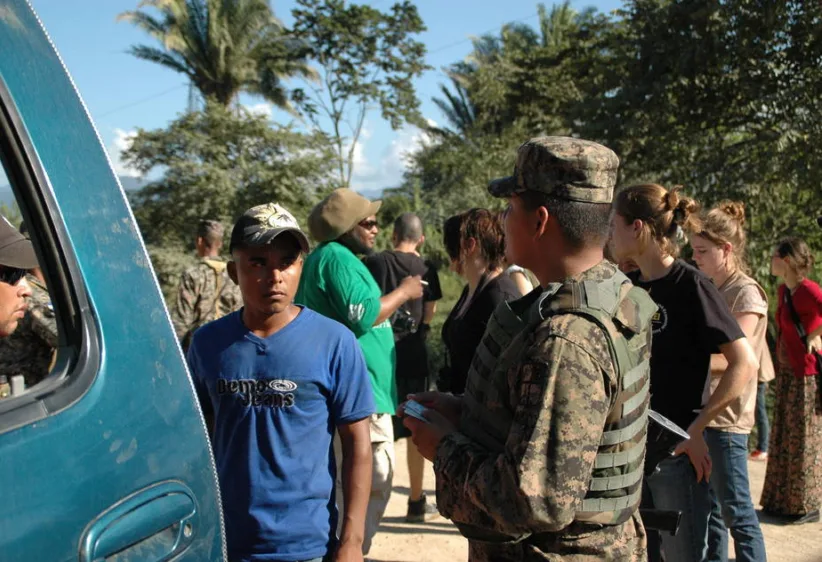Honduras

The civil wars in the neighbouring countries in the 1970s and 80s led to Honduras living in the shadow of Nicaragua, El Salvador and Guatemala where international attention was concerned. The country was forced into an important double role: as a base for the USA and the Contras in their fight against the Sandinistas in Nicaragua and as a footing for the FMLN liberation movement in El Salvador in its struggle against the dictatorship. The country is still the USA’s main base in Central America.
Following the coup in 2009, Honduras has experienced significant social and political regression. New laws have limited public participation, hampered transparency in the administration of national resources and liberalised the economy. Employees’ rights and public welfare have generally been undermined. A militarisation of the country has been undertaken in order to protect the power and interests of the elite. Land owners and the financial elite maintain strict control of the government through the two largest political parties. The same power block also controls most of the media. Corruption, blackmail and financial favouritism riddle society at large. State enterprises have been privatised in the wake of the coup, while a huge number of concessions have been granted to domestic and foreign companies for the exploitation of natural resources. Today, almost 40% of Honduras lies under some form of concession.
It is currently legal for the armed services to monitor the movements of anyone they wish to on the pretext of fighting gang crime. The government uses the judicial system to cripple resistance by taking out litigation against members of organisations and human rights activists. Many find their lives being threatened and a number of people have been killed. Our partner organisations are among those to have experienced such offences. The perpetrators remain unpunished. In 2017, President Juan Orlando Hernandez capped it all off by altering national legislation so that he could stand for re-election. When Hernandez was subsequently declared the winner of the election despite proven electoral fraud, people took to the streets in mass demonstrations that continued for several weeks. These were brutally put down by the government by means of massive assaults, arrests and dozens of killings. Civil society organisations nevertheless continue to work for fairer distribution of power and resources and more participatory democracy, and against further violations of people’s rights.
Programme
Norwegian People’s Aid is one of the few Norwegian organisations to work in Honduras, where we have maintained a presence since 1985.
Where ownership is concerned, the poorest 72% own only 12% of the land. Coastal areas belonging to the Garifuna (Afro-indigenous people) are threatened by interests wanting to exploit the natural resources and develop the tourist industry. Women working in the textiles industry battle constantly for workers’ rights and women’s rights. Norwegian People’s Aid collaborates with organisations for small holders and indigenous peoples that fight for their rights to land and natural resources, and for sustainable nature management. Our support also goes towards legal assistance of leaders and organisations subject to violence and harassment, provision of information through local radio stations, and political education in relation to social issues.
